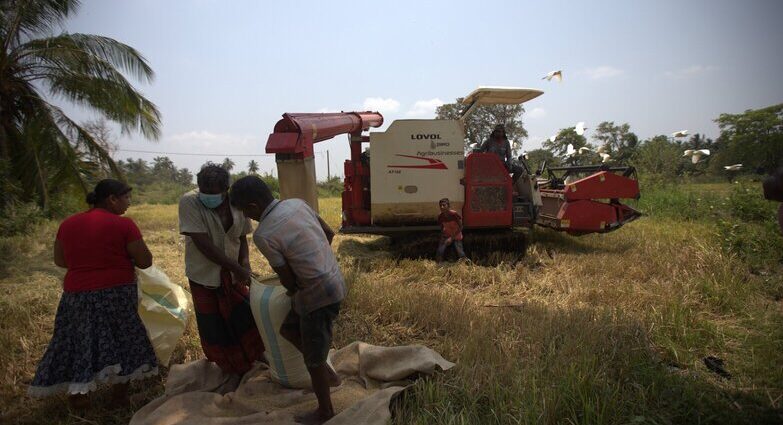DIMO Agribusinesses achieved a notable feat by doubling the LOVOL harvester market share in the previous season, establishing increased popularity within the Sri Lankan farming community. This success is attributed to the distinctive aftersales service provided for LOVOL harvesters.
Elevating the mechanization of agriculture in Sri Lanka, DIMO Agribusinesses, the agriculture arm of DIMO, launched the LOVOL harvester, offering farmers the opportunity to actualize their harvesting aspirations. With LOVOL aftersales service farmers received personalized information on maintenance and regular advice to minimize maintenance costs while maximizing machine efficiency. The harvester maintenance was conducted at a reduced cost for farmers by offering exclusive discounts on essential spare parts needed for service. This enabled farmers to prepare their harvesters well before the cropping season, ensuring maximum efficiency in harvesting. The company’s door-to-door service approach has allowed for a comprehensive understanding of customer needs, enabling the delivery of top-notch service to its clientele.
Rajeev Pandithage, Executive Director of DIMO who also oversees the agriculture machinery segment in the group, expressed, “We take immense pride in pioneering the agriculture mechanization in Sri Lanka. Being the first company to introduce combined harvesters to our country over a decade ago was a significant milestone. We have continued to evolve, serving both premium and mid-range segments with world-class machinery. By offering the appropriate machinery and unmatched aftersales care, we are transforming the way farming is done in Sri Lanka while fuelling the dreams and aspirations of the farming community through comprehensive agriculture mechanization. We are proud to have doubled our market share of LOVOL Harvesters, but even prouder of the impact it has had on Sri Lanka’s farming communities.”
Within a short period, Sri Lankan farmers encountered numerous challenges, including drought, fertilizer shortages, fuel scarcity, and high interest rates. In response, the support offered by DIMO Agribusinesses for their LOVOL harvester servicing was a strong backing for them. Consequently, LOVOL gained increased popularity among the Sri Lankan farmers. The provision of appealing leasing options in partnership with diverse financial institutions, a one-year warranty period, and the widespread presence of LOVOL sales agents across the island have collectively contributed to the swift expansion of this market share.
DIMO Agribusinesses is advancing further by establishing associations for harvester machine owners and operators. These associations aim to impart essential mechanical knowledge, offer guidance on proper operations, and raise awareness of best practices in the agriculture industry.
END
About DIMO
Diesel & Motor Engineering PLC (DIMO) is involved in a number of related fields and represents many prestigious principals – Mercedes-Benz, Siemens, Jeep, KSB, TATA Motors, MTU, Komatsu, Michelin, Zeiss, MRF, Bomag, Claas, TK Elevator, Mahindra Tractors and Stanley to name a few. From a company known for vehicles, DIMO today has diversified into many areas. Medical Engineering, Building Management Systems and Services, Power Generation and Distribution, Material Handling, Storage and Warehouse solutions, Power Tools, Agricultural Equipment, Total Lighting Solutions, Power systems and Generators, Refrigeration, Ship Repairing and Driver Training Courses are some of the areas into which DIMO has entered during the past few decades. DIMO has also diversified into fertilizer and agriculture input market. DIMO successfully entered into overseas markets in the Maldives and Myanmar, by expanding their Marine and General Engineering services through partnerships in the Maldives and their automobiles and automobile servicing segments into Myanmar. DIMO is currently working to consolidate on current overseas operations with new markets in East Africa.
